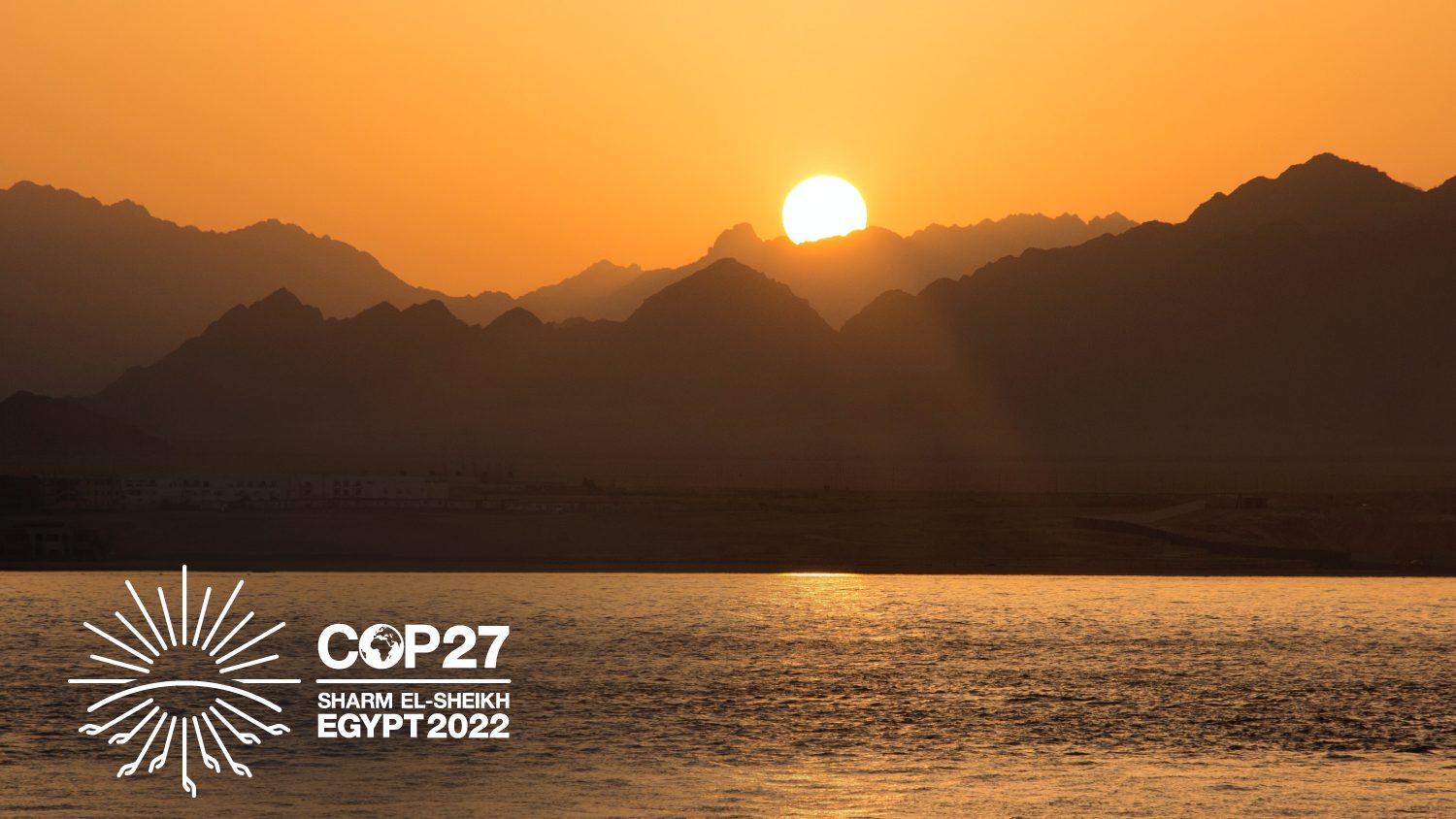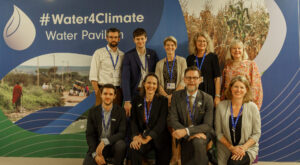5 reasons why water is critical to COP27
Too little has happened since last year’s climate meeting COP26. But the upcoming COP27 can speed up progress if water is placed at the heart of climate action. New research and growing climate risks should make water more important than ever – here are five reasons.
When the next UN Climate Change Conference opens in Sharm El-Sheikh 6-18 November it will be amid fears that the world is less committed to climate action than a year ago. At COP26 in Glasgow countries still said they would deliver emission cuts that could keep global warming below a 1.5-degree temperature increase. But according to a new report from UN Climate Change, we are instead headed for a 10-percent increase by 2030.
Growing geopolitical tensions, rising food prices, turbulent energy markets and inflation seem to have put climate action on the back burner – again. But in today’s complex world we cannot only effectively address the many challenges we face by understanding how they are interlinked, and that this often is through water. On a more positive note, this also means that many of the problems can be most effectively tackled by improving the management of water.
Ahead of COP27 there are several trends that should place water high on the global climate agenda.
1. New research shows the importance of water in climate mitigation
The Sixth Assessment Report from the Intergovernmental Panel on Climate Change showed that the water cycle is more sensitive to global warming than expected, with a surge in droughts, floods and storms already at today’s one-degree temperature increase. The weather extremes will accelerate as temperatures rise, making it more difficult to get freshwater, grow food and produce energy.
At COP27, SIWI and partner organizations will present the first report that summarizes the role of water in climate mitigation, which is potentially game changing. The essential drop to reach Net-Zero: Unpacking Freshwater’s Role in Climate Change Mitigation. The report describes the interconnection between climate, water, food, and energy, arguing that this calls for a new approach where these challenges must be addressed jointly.
2. A better understanding of the role of nature
The SIWI report on mitigation highlights the growing body of research on how water scarcity is putting additional pressure on already degraded ecosystems, which risk flipping them from binding and storing greenhouse gases to instead increasing emissions. To prevent this from happening, ecosystems must urgently be protected and restored. It is critical to understand how land, freshwater and oceans are interconnected so that they are managed holistically, from source to sea.
The role of nature and nature-based solutions were starting to get more attention during last year’s COP26 and it is important that the connection between freshwater, greenhouse gas storage and healthy ecosystems is made more explicit at COP27. It could help that it takes place in the run-up to the UN Biodiversity Conference, COP15, held in Montreal in December.
3. More focus on implementation and adaptation
The Egypt-hosted COP27 is described as an African COP, focused on implementation and adaptation. At COP26 countries also decided to ramp up the proportion of climate financing going to adaptation measures.
In practice, this should mean investments in the management of water, since climate change is primarily felt in the form of too much, too little or too polluted water. The upcoming report on water and climate mitigation also points to a wide range of solutions that simultaneously increase resilience to the effects of climate change and reduce greenhouse gas emissions.
One of the most crucial aspects is to transform agriculture in an era of worsening droughts. In Sub-Saharan Africa, most farmers are smallholders relying on rainfed agriculture and the relatively limited investments could greatly improve their food security.
4. Stronger calls for just climate financing
The question of implementation and adaptation is obviously closed linked to the question of resources and financing. Despite an intense debate, high-income countries have not yet described how they will contribute to the agreed $100bn per year to help “less wealthy” nations reduce emissions and adapt to climate change. Ahead of COP27, the momentum however seems to be growing for recognition of funding for loss and damage and this will be one of the most critical questions.
Investments in access to water and sanitation, in early-warning systems, in resilient food systems and in natural buffers against extreme weather are some of the most effective measures for long-term resilience that could help close the growing global gaps.
5. The Egyptian presidency prioritizes water
The success of each COP meeting depends to no small degree on the leadership of the country holding the gavel. The government of Egypt from the beginning highlighted water as a priority area within its own action agenda, giving water a specific day in the programme, on 14 November. At World Water Week, Egypt presented the Aware initiative for climate adaptation and outlined how it will elevate water issues during COP27. Egypt is also leading the multi-stakeholder Water Pavilion at COP, with SIWI as implementing partner.
At COP27, the world needs to rethink climate action and focus on how it can be addressed together with the other challenges we are currently facing. The obvious starting point is through water.
Follow SIWI to COP27
To share new knowledge about water and climate, SIWI will be taking active part in the global climate conference COP27 between 6 and 18 November. Join our programme online to learn about a promising new generation of climate solutions.
Learn more








